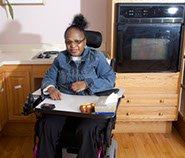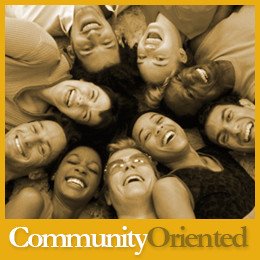
Our Services - Continued
Respite Services
 What is Respite Services?
What is Respite Services?
Respite Care is a service that provides periodic relief for the family or primary caregiver as detailed in the Person Centered Plan. In order to be considered the primary care giver, a person must be principally responsible for the care and supervision of the participant, and must maintain their primary residence at the same address as the covered participant. This service may be provided in the participant’s home or in an out-of-home setting.
Residential Supports
What is Residential Supports?
Residential Supports provides assistance with acquisition, retention, or improvement in skills related to activities of daily living, such as personal grooming and cleanliness, bed making and household chores, eating and the preparation of food, and the social and adaptive skills necessary to enable the individual to reside in a non-institutional setting.
Habilitation, training and instruction are coupled with elements of support, supervision and engaging participation to reflect the natural flow of training, practice of skills, and other activities as they occur during the course of the person’s day. This service is distinctive in that it includes habilitation and training activities, as well as care and assistance with activities of daily living when the individual is dependent on others to ensure health and safety. Support and supervision of the person’s activities to sustain skills gained through habilitation and training is also an acceptable goal of Residential Supports.
This service is provided to individuals who live in licensed community residential settings, foster homes, as well as unlicensed alternative family living homes that serve one adult. This service also provides assistance; support, supervision, and monitoring that allow individuals to participate in home or community activities. Residential Support Providers have 24 hours 7 day a week responsibility for the individual served and thusly are responsible for supervision and support of the individual when not in other services.
Community Networking Services
Community Networking services provide activities that support you in creating a day that is personally meaningful to you, and with persons who are not disabled. Community Networking Services are not provided in your home, anyone else’s home, residential programs or day programs. This service can help you develop meaningful community relationships with non-disabled individuals, and help you develop supports from people who are not paid to help you. Community Networking Services help you be more independent and take part in the community in ways that are valued by other members of your community.
Some of the things that Community Networking Services can help you do:
- Participate in classes at the community college, for example take a class in photography.
- Participate in community classes to develop hobbies, leisure, or cultural interests. For example, taking a knitting class, where you would meet other people. These classmates may later decide to meet weekly at a community center where everyone could work on their own knitting project at the same time.
- Perform volunteer work such as stocking food at the Food Pantry.
- Join a group that meets on a regular basis in the community, for example, a group that meets at a coffee shop every morning to discuss community events.
- Learn to use public transportation.
- Take classes on self-determination and participating in a self-advocacy group.
- If you are a child, provide staffing support for you to go to an after-school program that is designed for children who do not have disabilities.
- Pay the tuition for you to attend a class or to register for a conference (but not the hotel, meals, transportation to the conference or day care fees) up to $1,000 per year. This does not include child care fees, overnight camps, fees for summer programs whose primary purpose is child care, or memberships.


Copyright ©2015-2016. Curry's Haven. All Rights Reserved
